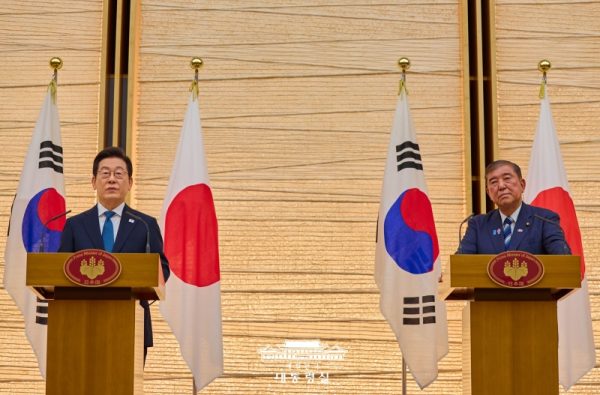PROTECT YOUR DNA WITH QUANTUM TECHNOLOGY
Orgo-Life the new way to the future Advertising by AdpathwayOn October 8, the founder of a religious media portal and a prominent contemporary Islamic scholar, Alisher Tursunov, better known as Mubashshir Ahmad, was sentenced to two and a half years in prison. On October 22, his lawyer Abdulloh Sodiq informed the public that the cleric would not appeal the court decision. Ahmad will serve his time in a general regime colony.
Tashkent has been after Ahmad, 51, for several years. Although the state closely monitors anyone active in the religious sphere, it pays particular attention to figures with large audiences on social media. Ahmad is one of the most prominent among them. Trained in theology both in Uzbekistan and at Al-Azhar University in Cairo, one of the oldest and most prestigious centers of Islamic learning in the world, Ahmad built a public profile that extended far beyond local mosques.
For 13 years, Ahmad studied with the late Sheikh Muhammad Sodiq Muhammad Yusuf, who is widely regarded as the most influential Islamic scholar in independent Uzbekistan. Sodiq was a towering figure in religious education after the fall of the Soviet Union, playing a central role in shaping Uzbekistan’s post-Soviet Islamic revival. He was respected across Central Asia and the Muslim world. Ahmad was one of his closest students and became part of a generation of young scholars trained in his tradition.
After his mentor’s death in 2015, Ahmad took on a more public role. As the government’s position on restricting religious practices and media freedom relaxed following the leadership change in 2016, he began to speak more openly and expand his activities. In 2017, he founded Azon New Media, an independent platform that combined a website, an online radio station, and a television channel. The platform quickly attracted a large following, especially on YouTube, and Ahmad himself became popular on social media.
Running the platform was not easy. It faced repeated pressure from the authorities, and in 2018 Ahmad lost his job at the Muslim Board of Uzbekistan, where he had worked as an assistant to the head of the secretariat.
Ahmad initially closed his platform with all its religious content in 2023 and moved to Turkiye. There he re-started with the new Azon Global portal, running it in four languages – Uzbek, Russian, English, and Turkish. In late December 2023 he was arrested in Turkiye and held in a detention center until February 2024. Tashkent placed him on a wanted list soon after. He was extradited to Uzbekistan in May 2025 and has been in detention ever since .
Ahmad’s court trial started in August, with at least four delays due to procedural and other issues such as the health of a judge.
Ahmad was charged on three counts: insulting or demeaning people on religious or ethnic grounds, spreading materials deemed a threat to public security through online platforms, and illegally producing or distributing religious materials.
The trial was open to the public but audio and video recording was not allowed. The scholar was supported by a large number of notable bloggers, journalists, and the wider public. Although the prosecutor demanded a seven-year prison term and a heavy fine, the court sentenced Ahmad to two-and-a-half years behind bars, citing mitigating circumstances such as his role in educating young people, his being the sole breadwinner of his family, and his lack of a prior criminal record.
Defense lawyer Abdulloh Sodiq has been the most consistent public voice for the defense. This week, he told Uzbek media that his client would not appeal the first-instance decision.
“Mubashshir Ahmad domla decided not to file an appeal. But he did not explain the reasons,” he said, using a common regional term for an Islamic teacher.
Sodiq made it clear that he disagreed with the court’s ruling, claiming the defendant’s lawyers proved that Ahmad’s work “did not constitute a violation of Articles 244-1 and 156 of the Criminal Code under Articles 244-1 and 156,” referring to the charges of producing and distributing materials deemed a threat to public safety and of insulting national honor and dignity with the intent to incite hostility. Sodiq added that, although he wanted to challenge the judgment, “the principal decision-maker is our client,” and suggested that Ahmad had chosen to “submit to fate.”
Ahmad’s case highlights two central issues in Uzbekistan: freedom of religious practice and media freedom. After the death of the country’s first president, Islam Karimov, his successor eased strict controls over both spheres. For a time, religious voices operated more openly, and independent media platforms had more space to grow. But this period of relative openness did not last. Over the past few years, there has been a clear shift back toward tighter state control, with growing restrictions on freedom of speech and religious expression.
The Diplomat earlier reported on a new wave of arrests over religious posts or songs shared on social media or even via private messaging apps. Another wave of arrests has included bloggers who have criticized the government or the first family.
In Ahmad’s case, it appears that the state is more interested in shutting down his platform than harshly punishing him with imprisonment. Apart from the two-and-a-half year sentence, the court also ordered the closure of the Azon Global portal and all of Ahmad’s personal social media pages.
The charges were based only on a couple of pages of material, and yet the punishment wipes away all of the work done by Ahmad and his team.
As of now, Ahmad still remains in a pre-trial detention center and has not been sent to a general colony.


 9 hours ago
2
9 hours ago
2






















 English (US) ·
English (US) ·  French (CA) ·
French (CA) ·  French (FR) ·
French (FR) ·